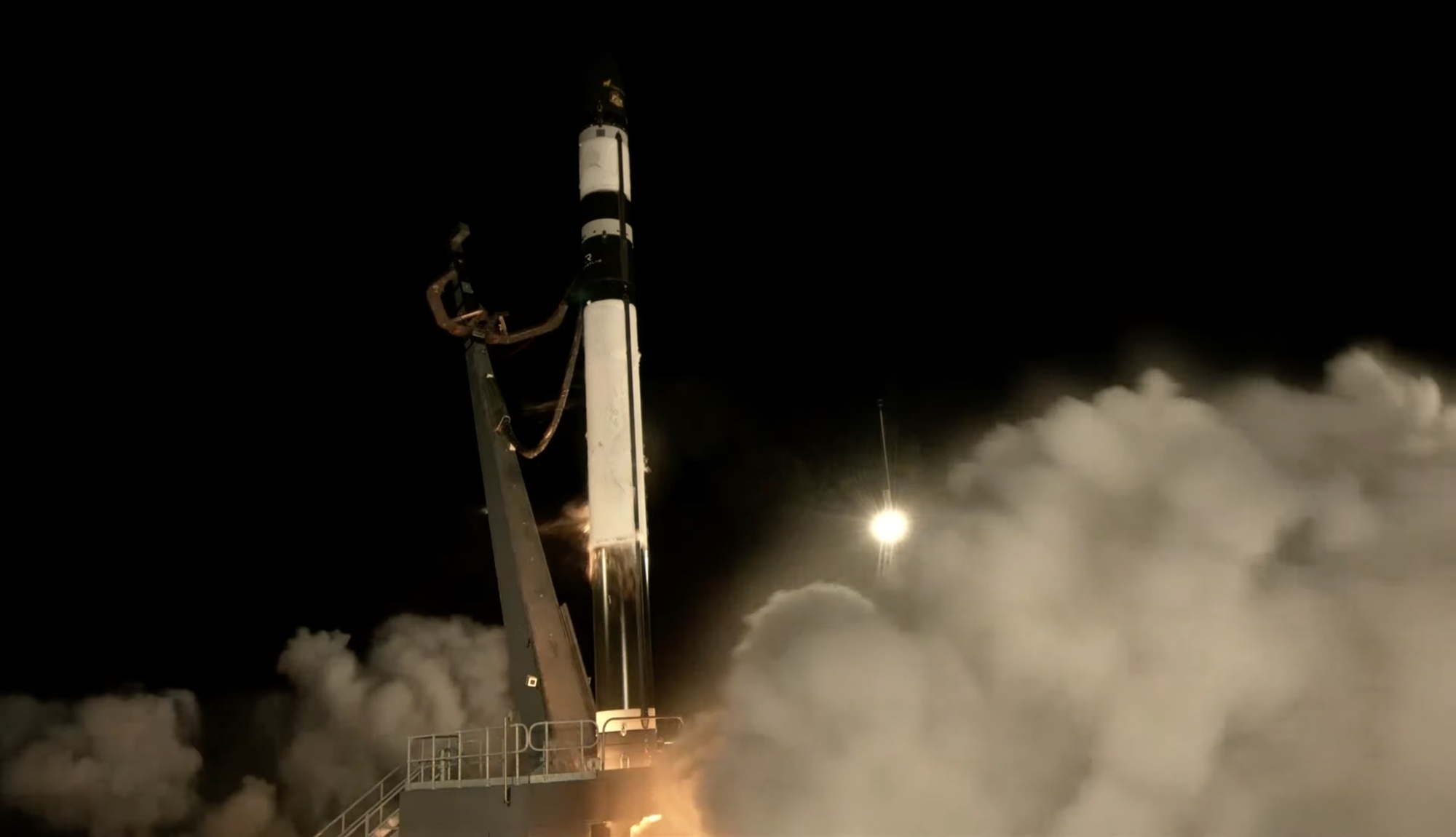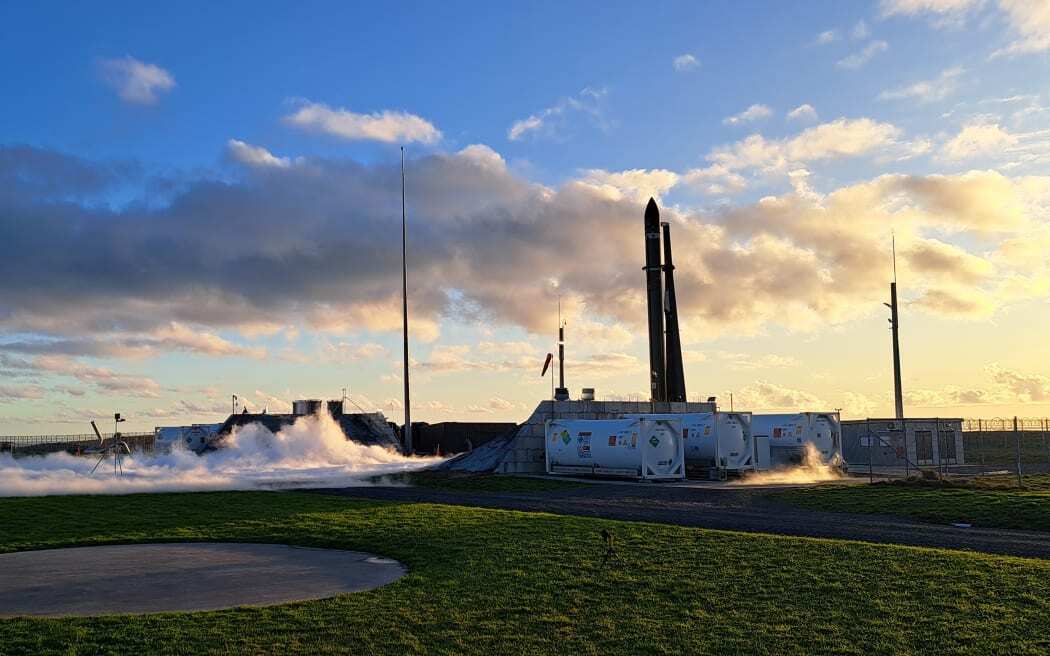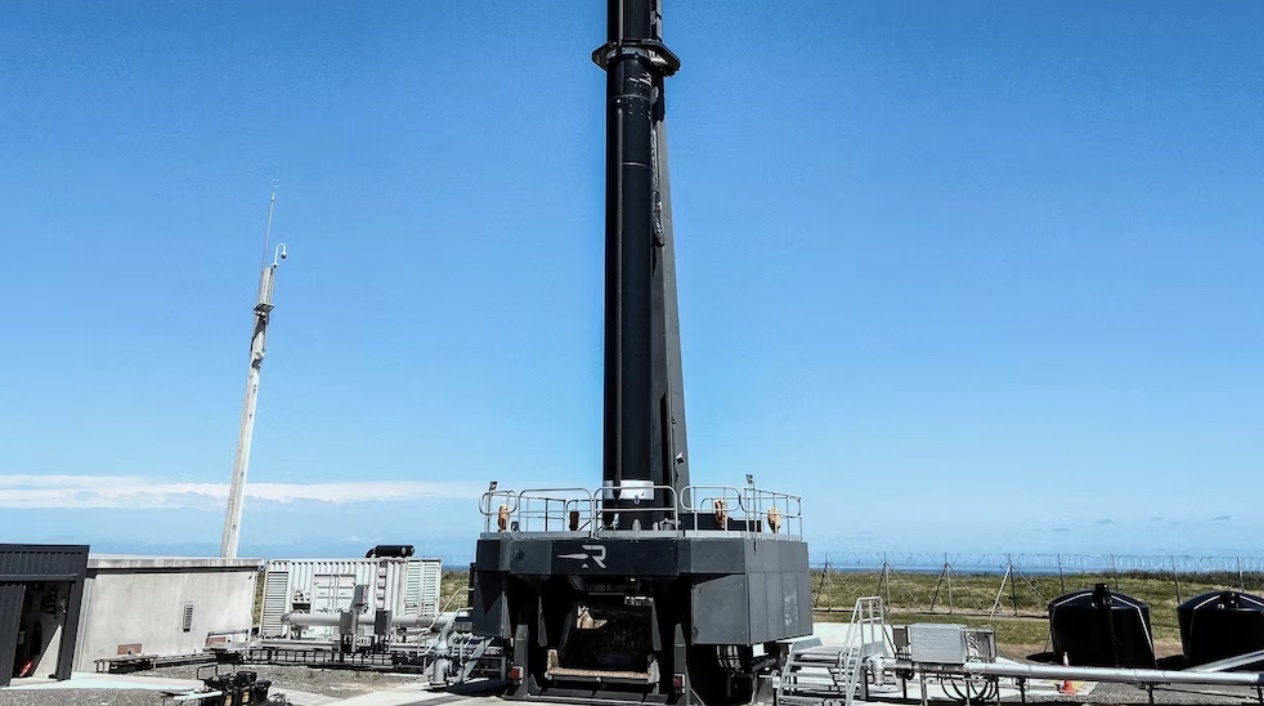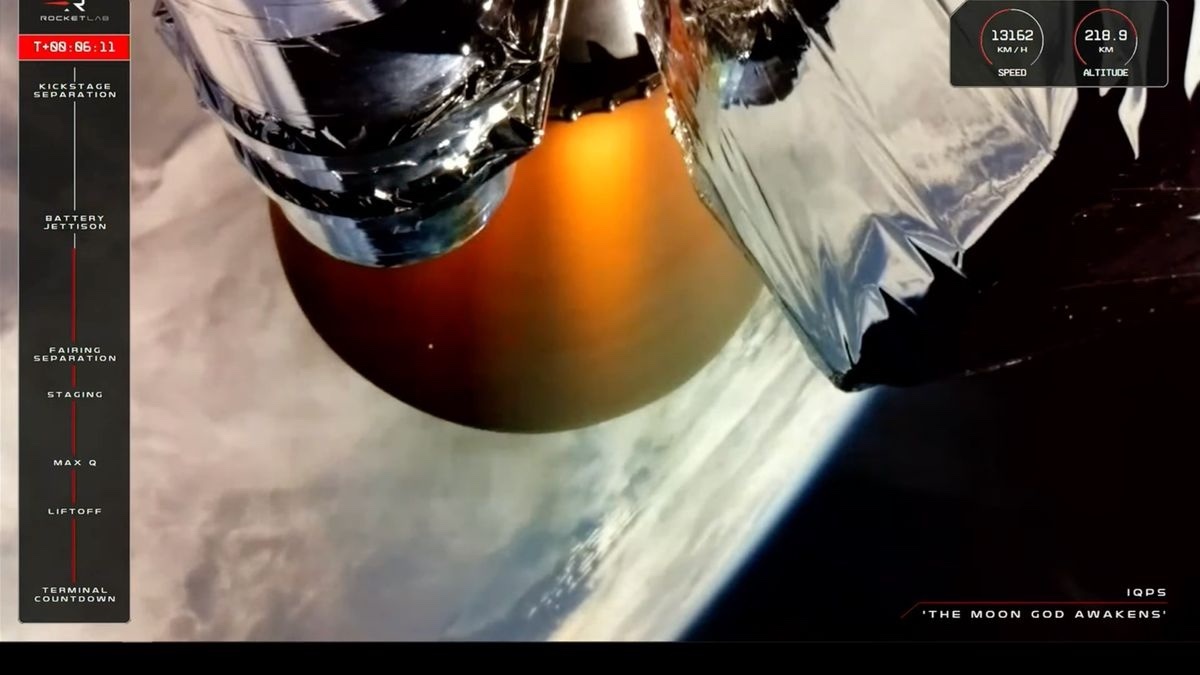10.11.2023

WASHINGTON — Rocket Lab expects to resume Electron launches in late November after concluding a “largely improbable” combination of events caused the vehicle’s previous launch to fail.
The company said Nov. 8 that it is targeting a return to flight of Electron no earlier than Nov. 28 from the company’s Launch Complex 1 in New Zealand. The rocket will carry a radar imaging satellite for Japanese company iQPS on a dedicated mission.
Electron has been grounded since a Sept. 19 launch failure when the second stage engine appeared to shut down moments after ignition. The company said Oct. 25 it was preparing to return to flight later in the quarter after getting authorization from the Federal Aviation Administration to resume launches, but did not disclose details of the ongoing investigation.
In an earnings call to discuss the company’s third quarter financial results, Rocket Lab Chief Executive Peter Beck said the failure happened quickly, with only 1.6 seconds of data from the first indication of a problem with the vehicle to the loss of telemetry. “This was always going to be a highly complex issue to figure out,” he said.
Detailed analysis of the telemetry that was available led engineers to conclude that there was an “unexpected electrical arc” within the power supply for the upper stage. That shorted the battery packs that power the upper stage, causing a loss of power.
Beck said that arc was the result of several factors. That included a “ripple voltage” in the power system, the presence of traces of helium gas and an “undetectable” flaw in insulation in the power system. Those factors combined, under conditions governed by a relationship called Paschen’s Law, to create the arc.
“If any of these things were not present, the failure would not have occurred,” he said. “So many things had to line up that most people would say that the probability of this occurring would be largely improbable.”
He said the company is taking two steps to prevent such a situation, however improbable, from happening again. One is to enhance ground testing of the upper stage to better detect potential arcing problems. Rocket Lab will also pressurize the upper stage’s battery frame section enough to prevent arcing conditions from forming. That latter measure is a “brute force solution,” he said, but was confident it would solve the problem.
The launch for iQPS is the first of two Electron launches that Rocket Lab has planned for the quarter. The company expects to roughly double its launch activity next year, with a current manifest of 22 launches, including two of a suborbital version of Electron called HASTE. Beck said that it is “completely booked” for Electron next year, but that there may be opportunities to bring in new customers if existing customers suffer delays.
“We have a completely sold-out manifest for next year at a number that is really solid,” he said, referring to the average launch cost of each Electron. The company has a target price of $7.5 million for each Electron, with some variability depending on the details of the mission.
The company suggested it may use the high demand for Electron to raise prices. “As we move forward, we are certainly seeing an environment that allows us to drive for firmer pricing,” said Adam Spice, chief financial officer, during the call. “As one of the few truly operational launch providers, we do see pricing power coming in our direction, so we expect that, longer term, we will see upward movement” in the average Electron price.
The company reported $67.7 million in revenue in the quarter and an adjusted earnings before interest, taxes, depreciation and amortization (EBITDA) loss of $15.5 million. Spice noted positive trends in both revenues and gross margins that are expected to continue into 2024 with the increase in Electron launches and as it begins to deliver Globalstar satellites under a contract with MDA.
Those trends put the company on a course to profitability, but Spice did not forecast when that might happen. “In terms of when we can get to adjusted EBITDA breakeven, Neutron investment, especially R&D spend, continues to be the pacing item,” he said.
Neutron is the larger reusable launch vehicle Rocket Lab is developing. Beck said work on that is going well, with several recent milestones on tanks and structures for the rocket as well as its Archimedes engine. He said there were no revisions to the previous schedule, which calls for having the first Neutron “on the pad” by the end of 2024.
“We still have a significant amount of capital to consume in getting Neutron to the pad by the end of next year. We’re well-funded to do that,” Spice said.
Quelle: SN
----
Update: 12.12.2023
.
Rocket Lab aims to launch new mission next week

New Zealand company Rocket Lab is doing a dress rehearsal later today for its latest satellite mission.
It aims to launch a small Earth-imaging satellite for a Japanese company next week from Māhia.
It is the company's first since a rocket failed in September shortly after take-off.
Rocket Lab is also working on hypersonic tests flights for the US Department of Defense. These test the likes of sensors rather than launching operational payloads.
However, the aim in early 2025 is to deploy an Australian-made 3m-long "dart" made by 3D printing, that can hit speeds up to Mach 7 or 8300km/h.
With its own test capacity under strain, the Pentagon is turning to private companies in a bid to boost its hypersonic test flights to one a week.
The Defense Innovation Unit signed its latest contract with Rocket Lab last month under the programme.
The "project represents a paradigm shift in viewing the hypersonic realm as a place for aircraft, not just missiles and weapons", the unit said.
The US is at the same time scrambling to deploy a hypersonic weapon amid fears of gains by China and Russia in developing super-fast missiles.
A major military contractor, Leidos, turned to Rocket Lab in June for the inaugural launch from its Virginia site of a hypersonic "test bed" for the US Naval Surface Warfare Center.
Suborbital missions like these are all run out of the US, by the company's wholly-owned subsidiary, Rocket Lab National Security, that it set up a year ago "to serve the defence and intelligence community" with services for "the US government and its allies".
Leidos has four launches like this with Rocket Lab.
"This will enable more robust and successful developments of hypersonic weapon systems," Leidos said.
Leidos also has a half-billion-dollar contract with the US Air Force under a secretive hypersonic programme called Project Mayhem.
The Pentagon has about 70 hypersonic programmes.
"Hypersonic and suborbital test capabilities are key priorities for the nation [US], yet the DoD's ability to test these systems has been limited," Rocket Lab's senior director of global launch service, Brian Rogers, said on its website.
Its missions based on its Electron rocket provided "frequent, and cost-effective" test opportunities from Virginia, he said.
Quelle: RNZ
----
Update: 16.12.2023
.
Rocket Lab launches a Japanese satellite from the space company's complex in New Zealand
California-based Rocket Lab has launched a Japanese satellite from the space company's complex on New Zealand’s Mahia Peninsula

In this image released by Rocket Lab, an electron rocket on the launch pad at the Mahia Peninsula, New Zealand, Wednesday, Dec. 13, 2023. California-based Rocket Lab plans to launch a Japanese satellite TSUKUYOMI-I, into orbit on behalf of a Japanese start-up Institute for Q-shu Pioneers of Space Inc., Friday, Dec. 15, 2023. (Rocket Lab via AP)
WELLINGTON, New Zealand -- California-based Rocket Lab, which specializes in putting small satellites into orbit, launched a Japanese satellite on Friday from the space company's complex on New Zealand’s Mahia Peninsula.
The mission, named “The Moon God Awakens,” was initially scheduled for Wednesday but was postponed due to forecast strong winds. The Electron rocket launched at 5:06 p.m. local time (0406 GMT).
The rocket successfully carried the TSUKUYOMI-I satellite into orbit on behalf of Japanese startup Institute for Q-shu Pioneers of Space Inc, Rocket Lab said in a statement more than two hours after the launch.
The synthetic-aperture radar satellite, named after a Japanese god of the moon, will collect images of the Earth, Rocket Lab said.
The mission is Rocket Lab’s 10th for 2023, exceeding its annual record of nine set in 2022.
It is the 42nd Electron launch from Mahia or from the Mid-Atlantic Regional Spaceport in Wallops Island, Virginia, since 2017. Rocket Lab was founded in New Zealand in 2006
Quelle: abcNews
+++

